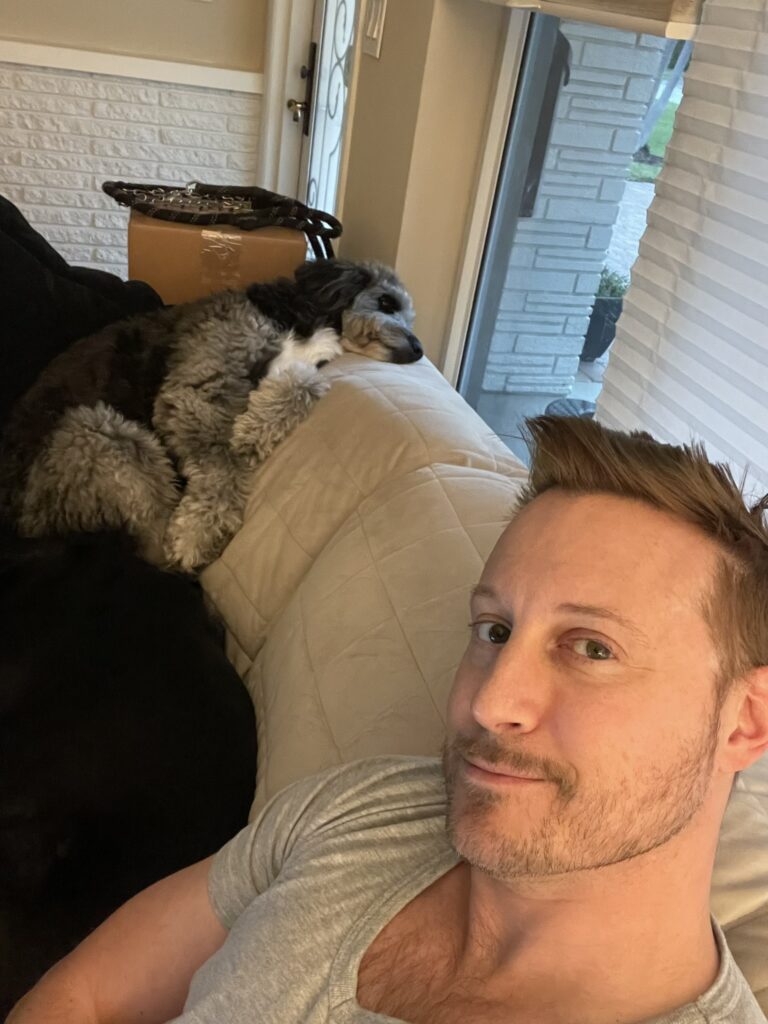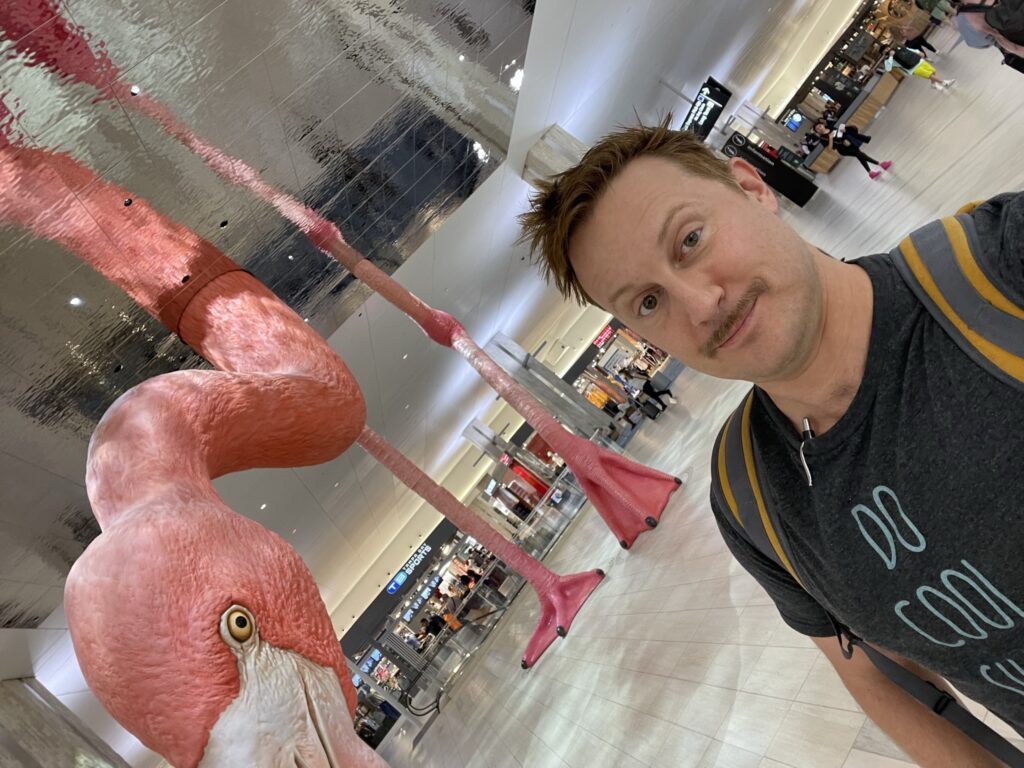
Dear Fellowship Family:
Thank you for this chance to share a little about my experience with recovery. As I take this moment to pause and reflect, I must acknowledge that I learned to effectively express myself by listening to others, relating to their experience, and by connecting the words with feelings I had never been able to describe. Maybe, something here will help you on your life journey.
To start, I want to tell the folks who are new or newly returning: WELCOME HOME!!!
I remember feeling easily overwhelmed in my early recovery. On December 24, 2016, I started a particularly difficult chapter of my life. I needed a lot of help. I had been creatively combining what and how I used for a fair amount of time. I was starting to experience significant health complications from having full-blown AIDS and consequences from life events that final chaotic year. Right away, I had to deal with multiple doctors, hospitalizations, and surgical procedures. There was the fight for benefits and to get Medicaid. Then things like getting meds, glasses, support for crippling trauma and difficult PTSD symptoms. AND of course, there was the whole recovery thing and trying to figure out what does that actually mean? Honestly, I really didn’t understand addiction or recovery. I just knew things had been dim and disconnected and that light and feeling was coming back.
My first experience with an institution was when I was 19 after “an incident” that landed me in the ICU and required an extended hospital stay. (I still remember the heavy metal doors, being locked up, and being willing to say and do whatever I needed to so I could leave.) Then came seventeen years of “forget the past, white-knuckle it, and keep it moving.” I was so busy chasing a life I thought I wanted, I never took the time to figure out what was needed for me to be happy. There were good times, fun times, and chaotic times. Surviving the crashes along the way, I thought I had to do it all on my own. I was always in a rush to do the next thing. If I ran fast enough, I figured I’d get somewhere. With a final crash landing in what became my last experience with an “institution”, I finally started to figure out how to just slow down. So I did my 30 days and at the end of January 2017, I arrived at Fellowship. That first year was all about getting my physical health back, and 2018 was about building my mental fitness. The challenge was embracing the idea that I couldn’t do it all on my own. The other challenge was fighting the urge to accelerate. As I felt better, I wanted to jump back into the lifestyle.
There were many times I questioned what else I should be doing, felt dread or depression, or struggled with wondering, “is this it?” There were many times in my early days that I had to fight to get out the door. I was on that emotional roller coaster where things could be ok one minute and I wanted to punch someone in the throat the next. I was very uncomfortable with accepting help from other people. I knew I needed to learn about healthy boundaries and forming new relationships. I just wanted to figure out how to be happy and love myself. There was also motivation coming from pain and my desire not to return to where I was coming from. I would easily get tired but not moving also gave me anxiety or made me depressed.
I understood that the only person who could live my life was me. The only person who could fix me was me. It sometimes felt like too much and I would break down and cry.
Grocery shopping and riding the bus (and people in general) gave me panic attacks. I was too sick for regular work my first couple of months. I had been told meetings were important and my strategy for going was like jumping into the pool. I just jumped. The people at these meetings were comfortable to be around. They didn’t judge me as I shared or didn’t share, as I rocked or as I nodded out. (That whole being sick thing meant A LOT of meds.) I committed to meet with people before and after these meetings. Going became my job. This was not my comfort zone, but it made me feel less alone. When I missed a meeting because of doctor’s appointments, or when I was in the hospital, they called to check on me or would visit. I didn’t like people seeing me vulnerable or talking about my feelings, but I was willing to answer the phone! Over time, it got easier to lean into the discomfort. I needed to open myself up to others for me to heal. I learned the value of people and what healthy relationships are like.
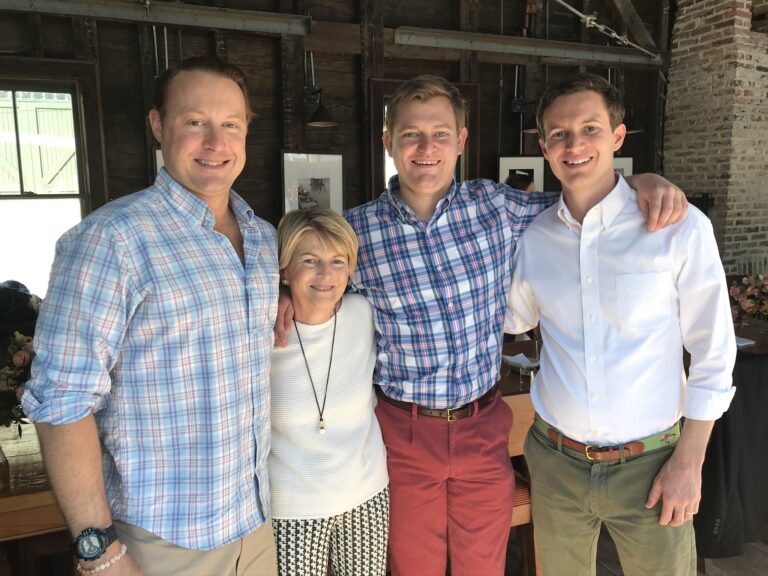
I was grateful that my family could help me with rent and some basics before I could work. Navigating community resources was frustrating, but being broke was a gift. No one cared that my clothes and underwear came from a donation bin. I had just enough to keep a roof over my head, food stamps and food pantries filled my stomach, and I had my free phone service. “Keeping it simple” for me meant that I could figure out the things that were truly important for me in my life. Living modestly showed me how easy it had been for me to use “stuff” to change the way I felt about life. It was another aspect of addiction and I needed to pay attention. Not having stuff forced me to pay attention to the value of things, and I finally internalized and lived the concept of quality over quantity. (Today, I understand it is possible to enjoy nice things, but I remain vigilant over materialism.)
“Keeping it simple” also became my strategy for decision-making. Because I like to complicate things to the point of blowing stuff up and burning it down, I struggled to find the most straightforward way to do things. I found myself asking for advice more and more and trying things other people suggested even when I didn’t want to. It turns out that simple was better after all. Less stress, less anxiety, fewer panic-inducing moments. By my fourth month, I had established a regular routine between meetings and appointments. I even made extra money doing side work and landscaping jobs with a handyman. Later, I was offered part time work with Rick and Sara at the recovery community center. I then worked part time across the street with my fellow residents, and eventually as a full-time admin on the residence side. By the time I moved, after 22 months with Fellowship, my outlook for the future had changed from dread and discomfort to excitement and anticipation for seeing what would come next.
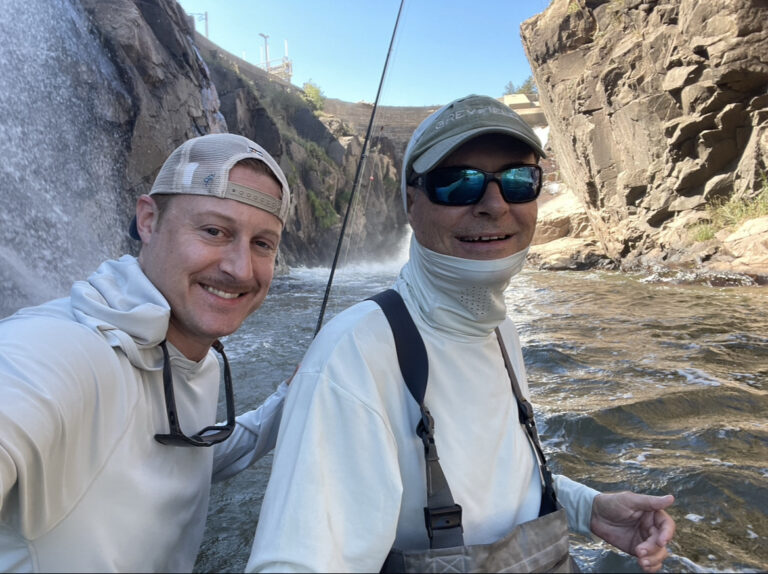
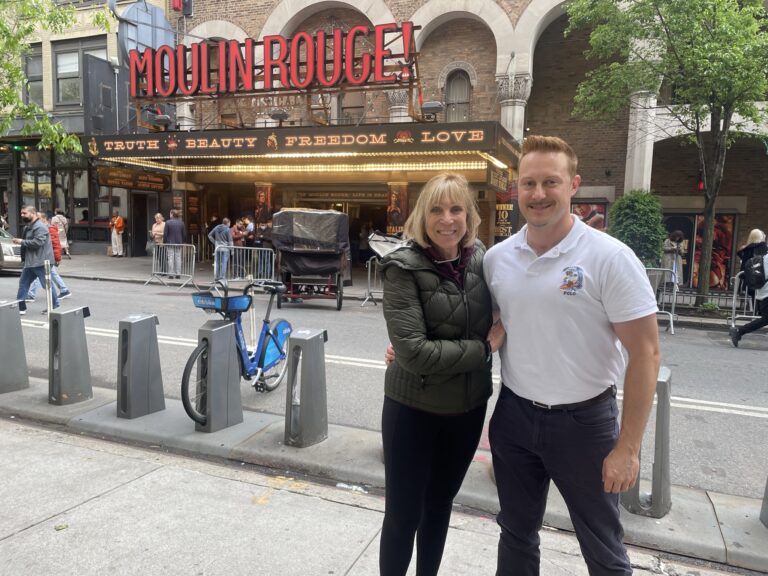
There have been some pretty big changes in the years since I spread my wings and moved away from Margate. We have survived a global pandemic and various Florida weather events. We still find ourselves within the overdose crisis. For many of us, we are navigating a housing and cost of living crisis. And there are a variety of social justice struggles. These big outside things are intimidating, but my life in recovery makes me a part of something bigger. Today, Recovery lets me see what I can do so I can explore options and make choices. Recovery is limitless.
I have explored and incorporated multiple pathways of recovery into my daily practice. Part of what this means is that I practice mindfulness and meditation, I use volunteerism and service, I see clinical professionals, I follow my faith, I use fitness and education, and I follow a 12-Step program. Doing these things, I continue to prioritize my own wellness and recovery and maintain work-life balance by figuring out the right amount of “busy” to keep me motivated. After being so sick and mistreating my own body for so long, I take care of it. My HIV is undetectable and non transmissible. I pay attention to what I eat and drink. I weight train 4x a week and round off my weeks with cardio. I have mended relationships, rebuilt connections with family, and rekindled friendships. Quality intimate relationships have also been new territory. NONE of this happened overnight. I tinker… I add and mix up my activities. What never changes is my regular communication with my support to share the wacky stuff that still goes through my head, my commitment and compassion to others who have struggled the same way I have, and my determination to leave the world a little better than how I found it.
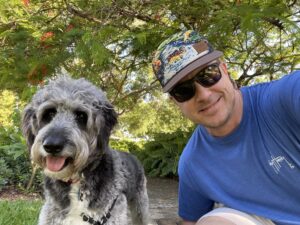
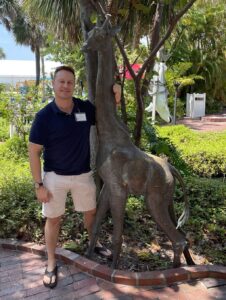
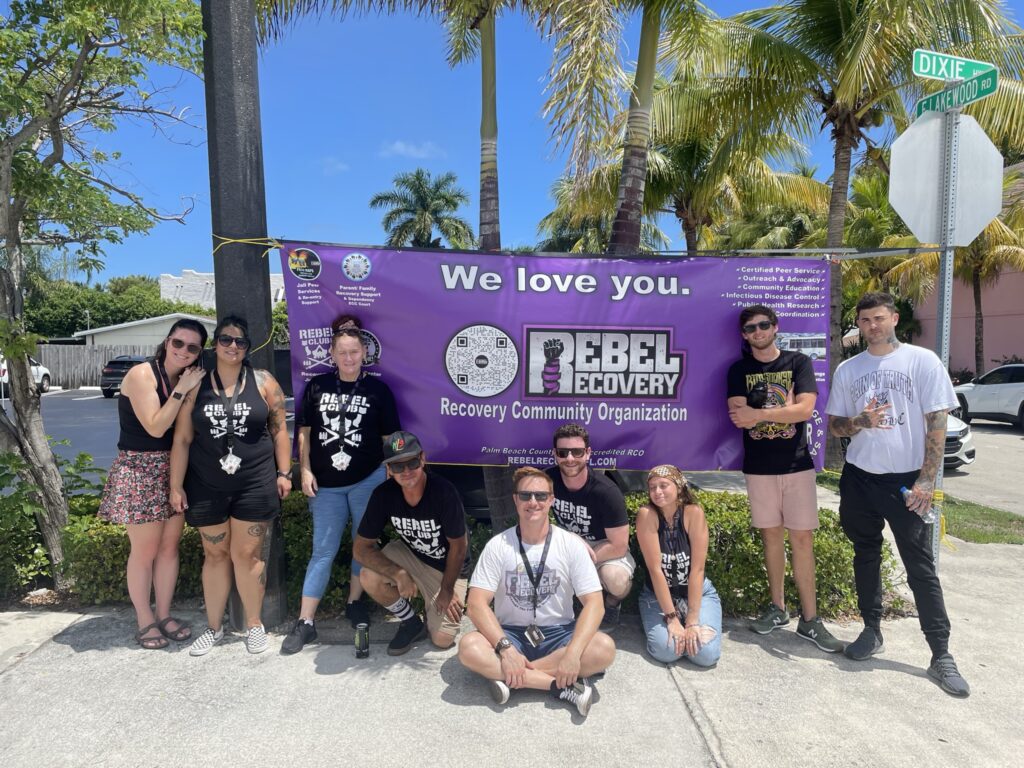
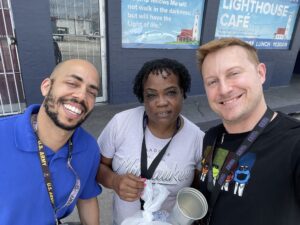
I started working on the front lines in Palm Beach County providing peer support based on harm reduction principles and using trauma-informed practices. I have learned a lot through my recovery commitments, family commitments, and personal development commitments. My lived experience and confidence in myself have fueled my work with people with active substance or who are on their own recovery journey.
I am the Chief Program Officer for a CAPRSS accredited hybrid RCO called Rebel Recovery in Palm Beach County. Part of my job is to plan and implement new programs to address different types of needs and secure funding. We have 14 programs in various service settings including in courts, in jail, in child welfare and dependency court, and across the community. We operate FLASH, the mobile syringe and health service program for Palm Beach County. Everyday, I am grateful that I get to do what I do. Opportunity knocks and I answer.
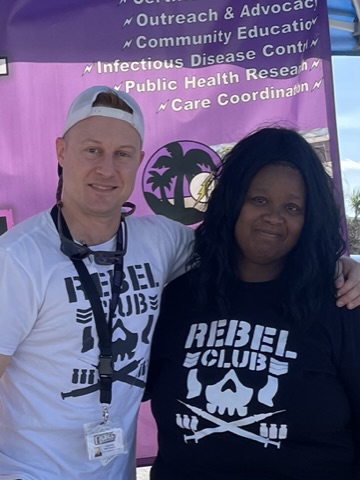
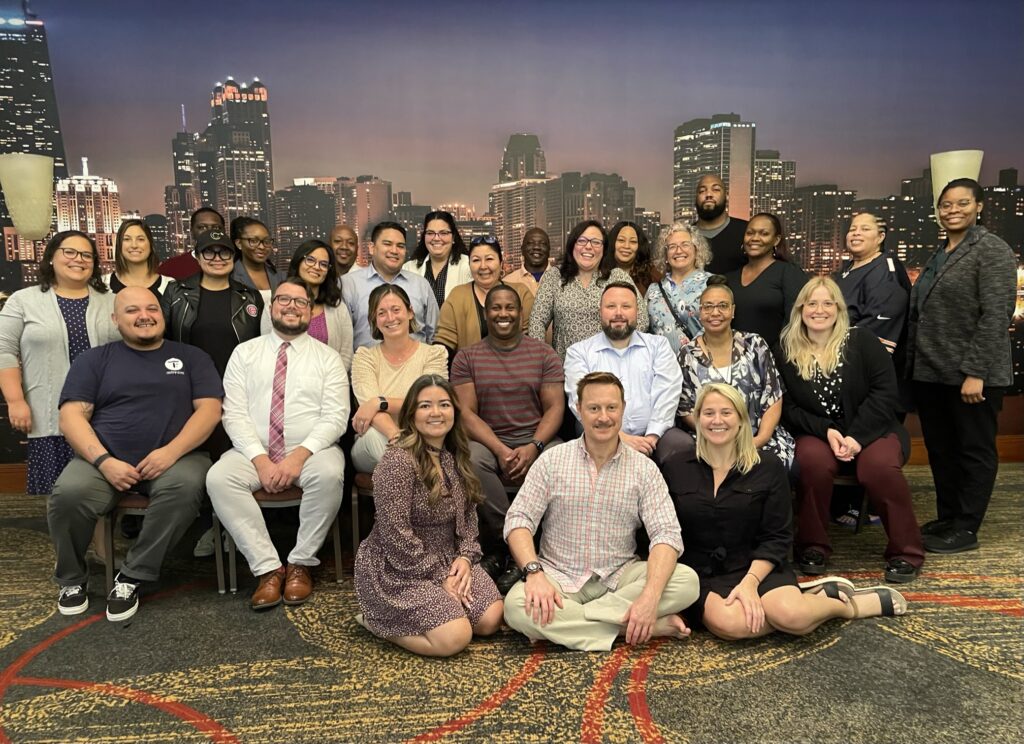
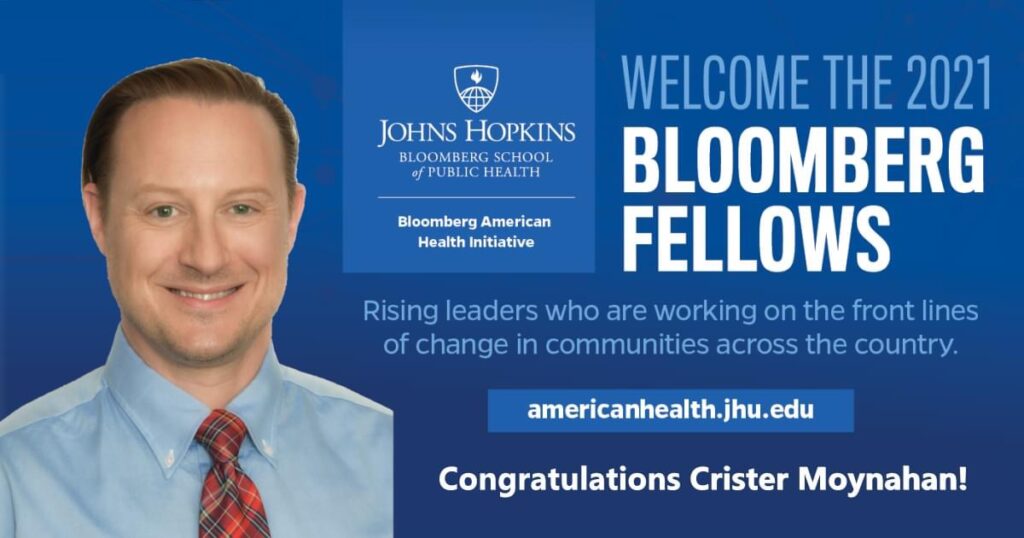
I have continued my exploration of “what could be” and decided I wanted to learn more about addiction and overdose prevention. All these things also gave me the courage to apply for a competitive Fellowship Program and a Master of Public Health program at Johns Hopkins.
Two of my three years are now complete. I remain passionate about recovery and the role of peer workers within the continuum of care. This is something I will continue to work on after graduation and I look forward to what will be next on the horizon! The point here is that life is about change and embracing possibilities.
We all go through situations and situation-ships, we have struggles and we all make mistakes. After trying different ways of managing the chaos, geographical moves, different jobs, different ways of medicating, I finally realized my recovery began years before Christmas Eve 2016. Going back to being 19 years old, embracing my history, and recognizing all the things I tried were just rungs on a ladder. And yeah, I may have broken some steps or even fallen off that ladder, but I always got back up. I don’t have to be ashamed. When I seek the truth of my history, I find moments of joy, plenty of happiness, and a ton of perseverance.
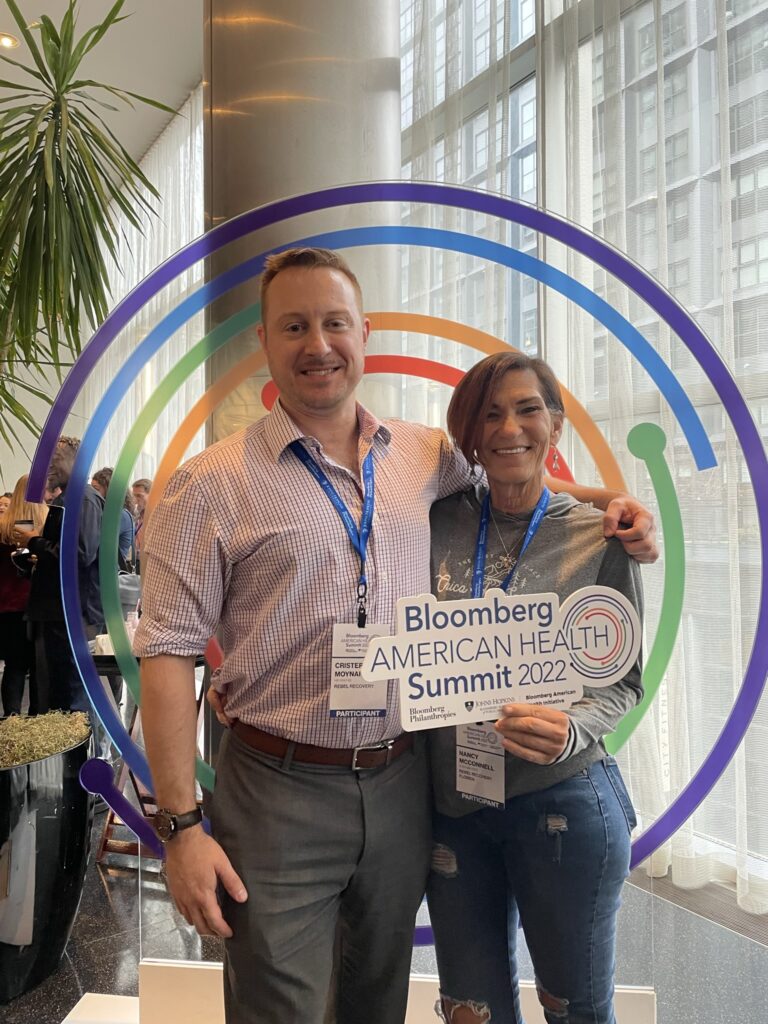
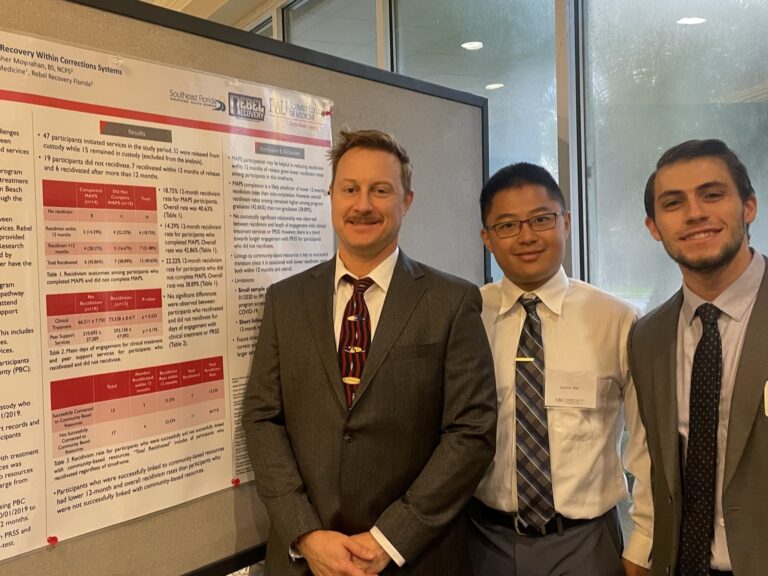
Everyone’s journey is different, but it is our history that empowers us as we move forward. Choosing recovery means I get to see options and make decisions for me. I choose to not harm myself or others. If I mess up, I choose to make it right. Recovery for me means that I have gone through some stuff that empowers me to do better and be better in all areas of my life.
So that’s all for now. I can’t wait to see what happens next!
Crister
